C++ language include an operator called typeid (https://en.cppreference.com/w/cpp/language/typeid).
Queries information of a type.
Used where the dynamic type of a polymorphic object must be known and for static type identification.
It gives you information about the type of an object, as long as it's available.
int a = 0;
std::string tname = typeid(a).name(); // tname == "i"
How it works?
Static Type
For static types, like the example above, compiler has all the information to know the evaluation result of typeid(a). Let's take at look at the assembly.
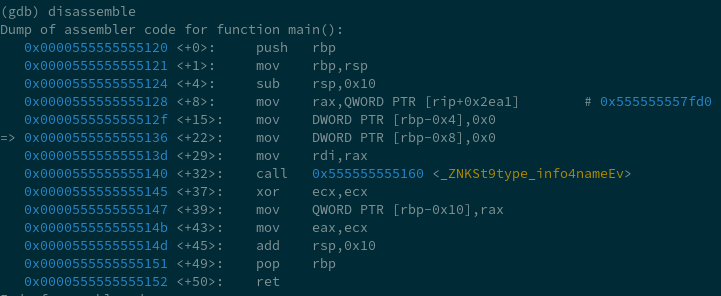
call 0x555555555160 <_ZNKSt9type_info4nameEv> is where it calls the name() member function of the result std::type_info object from typeid() evaluation of the expression. We are interested in the this pointer and where the std::type_info object lives.
this is stored in %rdi register before a member function call. It's coming from %rax which comes from a %rip relative address. Now we know the type_info object of interest lives at 0x7ffff7f827a0, the program looks up the address by looking at what's stored in [rip+0x2eal]. %rip register stores the program counter ($pc in GDB). A process's virtual memory layout looks like

Program counter (%rip) should always be pointing at the TEXT section of the virtual memory of a running process. So in this case, adding an offset of 0x2eal, it's now pointing at the section for storing global data.
To summarize, for static types, compiler has global variables (std::type_info) initialized. At places where the code calls typeid, the machine code just gets the corresponding std::type_info global objects that are already initialized. Done.
Dynamic Type
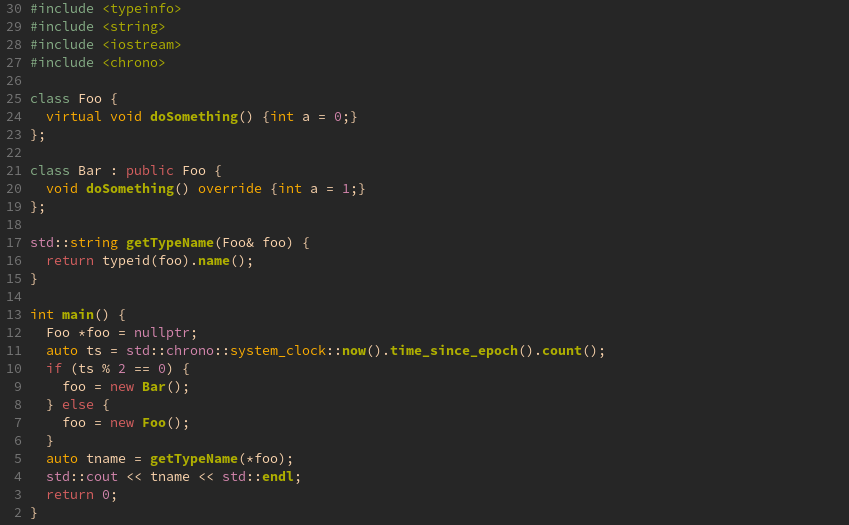
Here we have an example with dynamic types. Let's check the assembly.
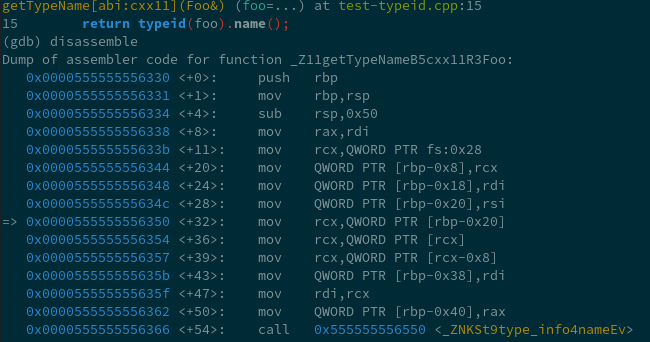
Similarly, notice the call to <_ZnKSt9type_info4nameEv>. We are interested in where the assembly got %rdi (this) from.
%rbp stores the stack base pointer. Accordingly to the calling convention, [rbp-xxxx] is how a machine gets locally variables for the current function frame. [rbp-0x20] must be getting the only locally variable (foo in this case).
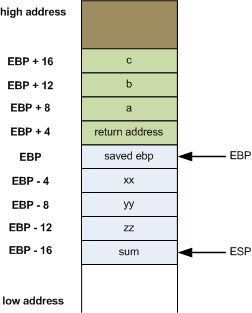
Notice mov rcx, QWORD PTR [rcx]. It took the first 8 byte of foo, and treated it as an address. It's the address to the vtable.
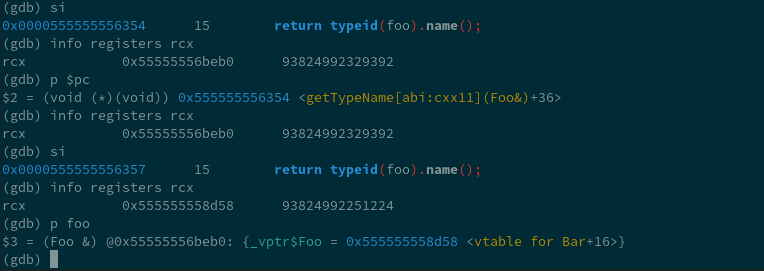
Now %rcx is the address of Bar's vtable. [rcx-0x8] is how it got the address to the std::type_info that we are interested in. This is called RTTI (Runtime Type Information, https://en.wikipedia.org/wiki/Run-time_type_information). It's kept as a pointer to std::type_info in vtable. The overhead is minimum (no more expensive than an additional virtual method).
You can disable RTTI, and compiler will produce an error if you accidentally use RTTI in your code.
~/p/how-typeid-op-works ❯❯❯ clang++ -std=c++17 test-typeid.cpp -g -fno-rtti
test-typeid.cpp:15:10: error: use of typeid requires -frtti
return typeid(foo).name();
^
